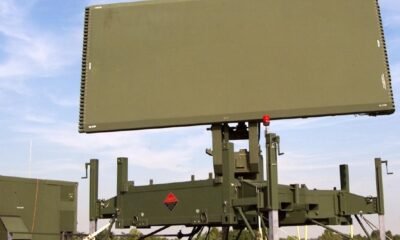INTERNACIONAL
Canadá confirmó que continuará negociando con EEUU para llegar a un acuerdo tras el arancel del 35% impuesto sobre sus importaciones
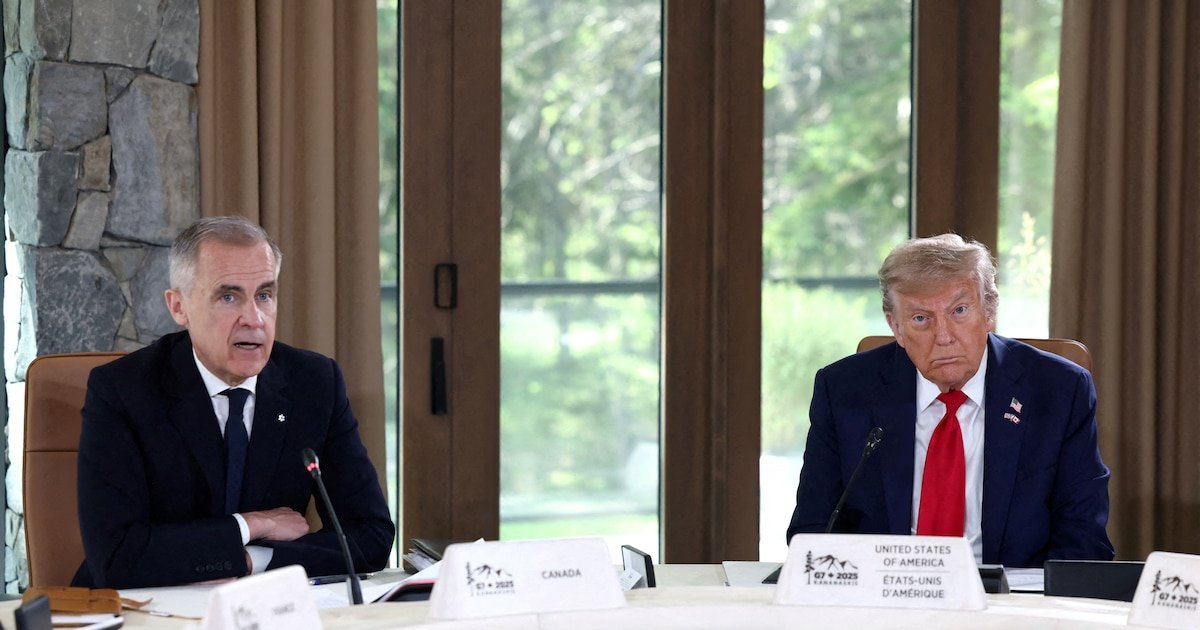
El gobierno de Canadá confirmó el viernes que continuará las negociaciones con Estados Unidos para alcanzar un acuerdo comercial justo, luego de que Washington impusiera un arancel del 35% sobre importaciones canadienses que no están cubiertas por el Tratado entre México, Estados Unidos y Canadá (T-MEC).
El ministro de Asuntos Intergubernamentales de Canadá, Dominic LeBlanc, quien encabeza las negociaciones con la Administración del presidente Donald Trump, declaró a la radiotelevisión pública CBC que Ottawa también mantiene contactos con México para discutir el futuro del acuerdo comercial norteamericano.
“He conversado con el secretario de Economía de México, Marcelo Ebrard, sobre la importancia del desarrollo futuro del T-MEC”, señaló LeBlanc. “Es esencial el trabajo que se realizará en 2026 para revisar el acuerdo comercial norteamericano”, agregó.
LeBlanc explicó que tanto Trump como el primer ministro canadiense, Mark Carney, sostienen conversaciones “constructivas, profesionales y cordiales” en busca de una solución bilateral. Subrayó que, si bien los nuevos aranceles afectan a sectores clave como los automóviles, la madera y el aluminio, el 90% de las exportaciones canadienses a Estados Unidos continúan sin gravámenes gracias al T-MEC.
“Canadá no aceptará cualquier acuerdo”, dijo LeBlanc. “Como ha señalado el primer ministro Carney, seguiremos negociando con Washington hasta que el acuerdo sea justo”, remarcó.
La imposición del arancel ha generado una respuesta coordinada en el país. Empresarios, sindicatos y gobiernos provinciales respaldaron la postura del gobierno federal. La Cámara de Comercio de Canadá emitió un comunicado en el que afirmó: “Es preferible esperar a tener un acuerdo que suponga beneficios duraderos”.
Por su parte, la Federación Canadiense de Empresas Independientes señaló que “ningún acuerdo es mejor que un mal acuerdo”.
El sindicato UNIFOR, el más grande del país y con fuerte presencia en el sector manufacturero, también se posicionó a favor de mantener la presión sobre Washington. “Canadá debe presionar para obtener un mejor acuerdo con Estados Unidos”, sostuvo la organización.
El conflicto comercial surgió luego de que el gobierno estadounidense decidiera aplicar aranceles adicionales a productos canadienses no incluidos en las disposiciones del T-MEC, vigente desde julio de 2020. Aunque no se han detallado las mercancías afectadas, los sectores identificados por Ottawa incluyen materiales esenciales para la industria canadiense.
La medida ha sido interpretada como una presión adicional en el marco de la revisión prevista del tratado comercial en 2026, cuando los tres países deberán decidir si extienden, renegocian o abandonan el acuerdo.
Las conversaciones bilaterales entre Canadá y Estados Unidos se desarrollan en un clima de creciente tensión económica y política. Canadá intenta preservar el acceso preferencial a su principal socio comercial mientras defiende sus intereses industriales ante las medidas proteccionistas impulsadas desde Washington.
Las autoridades canadienses no han especificado plazos para la conclusión de las negociaciones ni han indicado si adoptarán represalias comerciales, aunque han reiterado su disposición a dialogar en busca de una solución consensuada.
“Nuestra posición es clara”, insistió LeBlanc. “Estamos comprometidos con un acuerdo justo que refleje los intereses de Canadá y de nuestros socios comerciales en América del Norte”, concluyó. La próxima ronda de conversaciones está prevista para las próximas semanas.
(Con información de EFE)
North America,Government / Politics,OTTAWA
INTERNACIONAL
Trinidad y Tobago confirmó que EEUU instaló radares en el país cerca de la costa venezolana
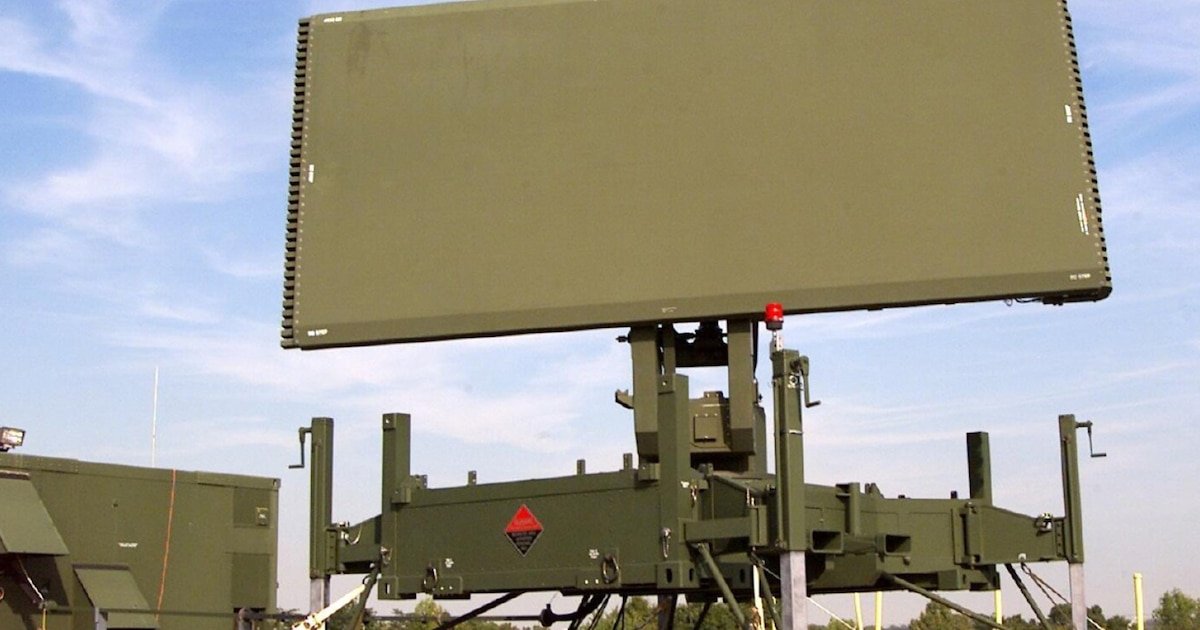
La primera ministra de Trinidad y Tobago, Kamla Persad-Bissessar, reconoció esta semana la presencia de marines estadounidenses en la isla de Tobago, tras haber negado días antes su estadía en el territorio nacional. La rectificación surge en un contexto de colaboración militar con Estados Unidos para fortalecer las capacidades de vigilancia y control ante el incremento de operaciones contra presuntos narcotraficantes en el Caribe y áreas próximas a Venezuela.
Durante un encuentro con medios celebrado el jueves, Persad-Bissessar explicó que los efectivos estadounidenses están en el Aeropuerto Internacional ANR Robinson de Tobago, trabajando en la instalación y mejora de infraestructura clave como el radar, la pista y las vías de acceso. Según declaraciones recogidas por medios locales, la mandataria afirmó: “Ellos nos ayudarán a mejorar nuestra vigilancia y la inteligencia de los radares para los narco-traffickers en nuestras aguas y fuera de nuestras aguas”. No especificó si se trata de una instalación nueva o una modernización del sistema ya existente, ni si el gobierno estadounidense podría utilizar la infraestructura para otras operaciones.
La confirmación de la jefa de gobierno responde, en parte, a reportes de ciudadanos que identificaron a marines estadounidenses en un conocido hotel de Tobago y a registros de plataformas de seguimiento aéreo que detectaron el aterrizaje de aeronaves militares en la isla. Funcionarios locales señalaron que al menos uno de estos vuelos corresponde a una operación de reabastecimiento.
Desde el 16 al 21 de noviembre, unos 350 efectivos de la 22 Unidad Expedicionaria de Infantería de Marina de EEUU realizaron ejercicios conjuntos con la Fuerza de Defensa de Trinidad y Tobago, en una serie de maniobras centradas en la interoperabilidad y la lucha contra el crimen organizado en la región.
El martes, la primera ministra se reunió con el jefe del Estado Mayor de EEUU, Dan Caine, quien viajó a Puerto España para dialogar sobre los desafíos de seguridad en el Caribe y el avance de organizaciones criminales transnacionales. Persad-Bissessar aseguró un día después que durante este encuentro no se mencionó el uso del país como base para operaciones contra Venezuela y negó haber recibido solicitudes de apoyo para acciones militares en ese sentido.
A pesar de ello, la presencia y cooperación militar estadounidense en el área ha generado inquietud en el contexto del aumento de fuerzas en el Caribe. Según informaron expertos citados en medios estadounidenses, el despliegue es el mayor en varias décadas y apunta a ejercer presión sobre el dictador venezolano Nicolás Maduro, aunque las autoridades trinitenses reiteran que su participación se limita a la lucha contra el narcotráfico.
La situación en la región se ha intensificado tras el anuncio del presidente de la República Dominicana, Luis Abinader, quien accedió a facilitar a EEUU el uso temporal de instalaciones en una base aérea y en el aeropuerto internacional para apoyar la campaña antidrogas. Paralelamente, el presidente estadounidense Donald Trump advirtió el jueves que sus fuerzas armadas actuarán “muy pronto” en territorio venezolano contra presuntos narcotraficantes, en un contexto en el que Maduro exhibió el poder de su aviación militar y llamó a la defensa del territorio nacional.
Ni el fiscal general de Trinidad y Tobago ni los ministros de Defensa y Seguridad Interna han respondido a consultas sobre el alcance de la cooperación militar con Estados Unidos. Tampoco está claro si los sistemas de radar instalados se utilizarán exclusivamente para el monitoreo del narcotráfico o podrían emplearse para otras operaciones estratégicas en la zona.
(Con información de EFE y AP)
South America / Central America,Government / Politics
INTERNACIONAL
Watchdog group hits Letitia James with bar complaint after federal judge tosses case

NEWYou can now listen to Fox News articles!
A conservative-aligned watchdog group has filed a bar complaint accusing New York Attorney General Letitia James of professional misconduct tied to her Norfolk, Virginia, mortgage, allegations that were also at the center of her recently dismissed federal charges.
The Center to Advance Security in America (CASA) filed the complaint with the state’s Attorney Grievance Committee, accusing James of engaging in «illegal and dishonest conduct» in connection with the mortgage she took out on the property, according to the New York Post.
According to the complaint and related public statements, the group alleges that James’ actions raise concerns under the state’s Rules of Professional Conduct, the ethical standards that govern lawyers in New York.
«Fraud, misrepresentation, honesty and trustworthiness are all factors that the Rules of Professional Conduct expressly consider when weighing whether to discipline an attorney,» Curtis Schube, the group’s director of research and policy, wrote in the four-page complaint, per the outlet.
A TALE OF TWO INDICTMENTS: TOP DEMS SAY ‘NO ONE IS ABOVE THE LAW’ ON TRUMP, BUT DECRY COMEY CASE
New York Attorney General Letitia James attends a press conference in New York. (Michael M. Santiago/Getty Images)
«The Committee, therefore, should immediately investigate the allegations against James and, if by ‘preponderance of the evidence’ the allegations are substantiated, she should be disciplined accordingly.»
A federal judge threw out the indictments against James and former FBI Director James Comey on Monday, finding they were illegitimate because they were brought by an unqualified U.S. attorney.
Judge Cameron Currie dismissed the bank fraud charges against James and the false statements charges against Comey without prejudice, meaning the charges could be brought again.
White House press secretary Karoline Leavitt told Fox News’ Martha MacCaullum that the Department of Justice plans to appeal.
«We believe the attorney in this case, Lindsey Halligan, is not only extremely qualified for this position, but she was in fact legally appointed,» Leavitt said. «And I know the Department of Justice will be appealing this in very short order.»
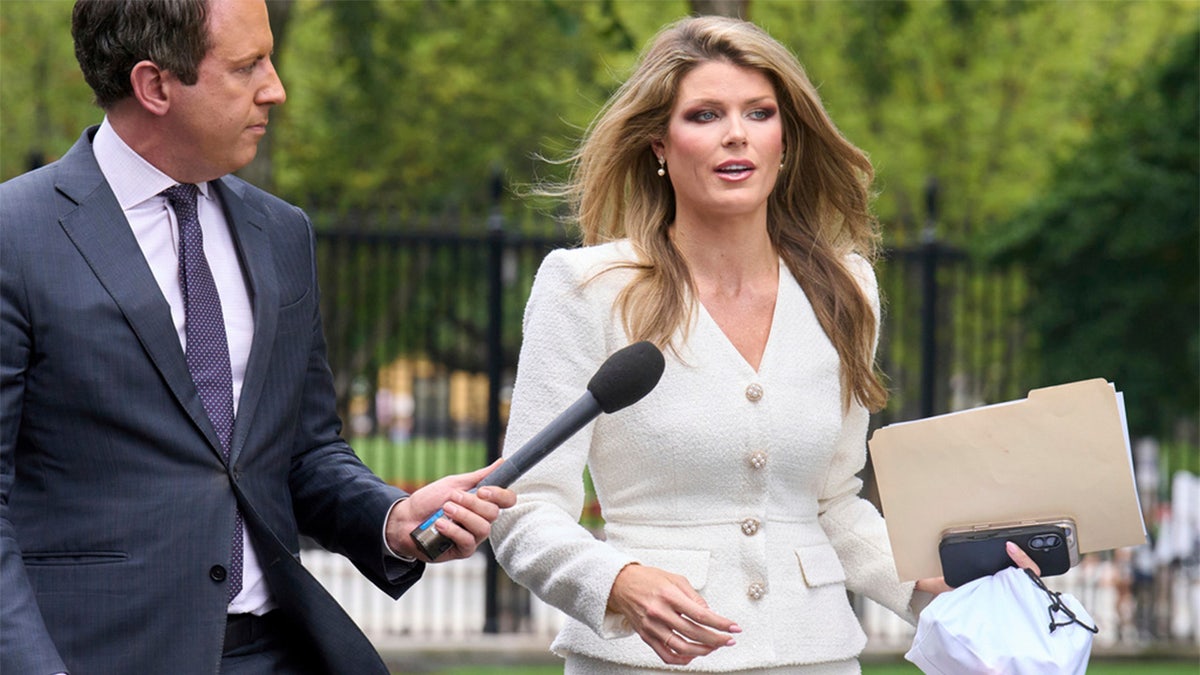
Lindsey Halligan, special assistant to the president, speaks with a reporter outside of the White House, Wednesday, Aug. 20, 2025, in Washington. (Jacquelyn Martin/AP)
LETITIA JAMES VOWS TO CONTINUE TARGETING TRUMP AFTER YEARS IN THE COURTROOM: ‘TRUMP DERANGEMENT SYNDROME’
Currie, a Clinton appointee based in South Carolina, was brought in from out of state to preside over proceedings about the question of Halligan’s authority because it presented a conflict for the Virginia judges. Comey’s and James’ challenges to Halligan’s appointment were consolidated because of their similarity.
Halligan acted alone in presenting charges to the grand juries shortly after Trump ousted the prior interim U.S. attorney, Erik Siebert, and urged Attorney General Pam Bondi to replace him with Halligan, a former White House aide and insurance lawyer. Bondi complied, but Currie found the interim U.S. attorney term had already expired under Siebert and that the Virginia judges were now responsible for appointing a temporary U.S. attorney to serve until Trump could get one confirmed in the Senate.
James was indicted on Oct. 9 for allegedly falsifying mortgage documents to secure a $109,600 loan on the property. She was also charged with making false statements to a financial institution.
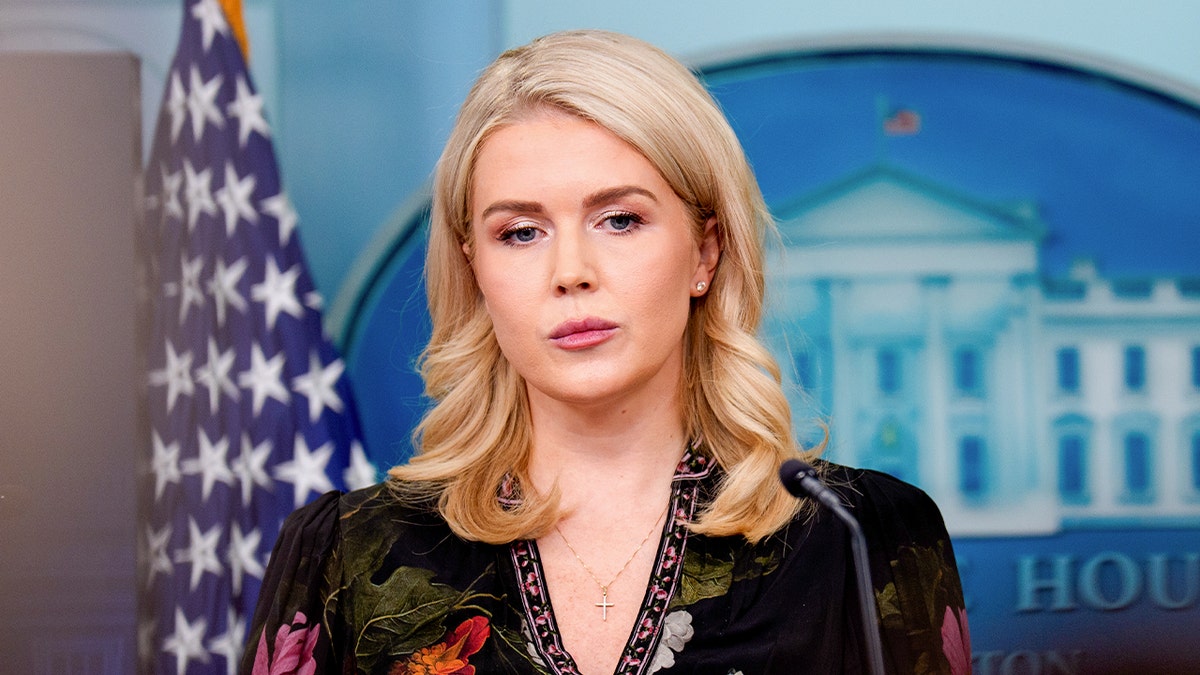
White House press secretary Karoline Leavitt said that the Department of Justice plans to appeal the dismissal of the case against James. (Andrew Harnik/Getty Images)
CLICK HERE TO DOWNLOAD THE FOX NEWS APP
James, a second-term Democrat, was accused of claiming the property as her principal residence in 2023 despite being a public office holder in New York at that same time.
She has denied wrongdoing. She previously said she made an error while filling out a form related to the home purchase but fixed it. She noted that she never tried to deceive the lender.
Fox News Digital reached out to both the New York attorney general’s office and CASA, but did not immediately receive a response.
Fox News’ Ashley Oliver and Louis Casiano contributed to this report.
politics,crime,new york,justice department,law,james comey
INTERNACIONAL
Cómo la dieta romana anticipó ideas actuales sobre salud y bienestar

Mucho antes de que términos como calorías, proteínas o vitaminas se popularizaran, los habitantes del Imperio romano diseñaron una teoría de la nutrición sofisticada para su tiempo. Sin acceso a métodos científicos modernos, los romanos crearon un sistema fundamentado en la observación empírica y en la teoría de los humores, influyendo tanto en su alimentación como en la percepción de la salud y la personalidad. Aunque este enfoque difiere de los principios científicos actuales, revela paralelismos notables con conceptos contemporáneos sobre nutrición.
En el corazón de la nutrición romana existía la convicción de que los alimentos, tras ser ingeridos y digeridos, se convertían en sangre, considerada el elemento esencial del organismo.
La Dra. Claire Bubb, profesora adjunta de estudios sobre el mundo antiguo, explica en History Extra que la comida se transformaba en sangre, y esta, a su vez, alimentaba las partes del cuerpo donde era requerida: “El componente básico del organismo”.
Así, quienes utilizaban más sus músculos dirigían hacia ellos la sangre necesaria para su desarrollo. Esta perspectiva, aunque lejana de la fisiología moderna, reflejaba una comprensión intuitiva de la conexión entre alimentación y bienestar físico.

A diferencia de la ciencia actual, que clasifica los alimentos según su composición química, los romanos agrupaban los productos por sus cualidades percibidas: calor, frío, humedad y sequedad. Estas características, determinadas por sabor y textura, se vinculaban a efectos específicos en el organismo. Por ejemplo, los pepinos se consideraban fríos y húmedos, mientras que el pan y la carne asada eran vistos como secos y calientes.
En tanto, los alimentos de sabor fuerte, como la cebolla, el ajo o la rúcula, se catalogaban como picantes. A algunos se le atribuían la capacidad de fortalecer el cuerpo o aportar “jugos saludables”, anticipando de forma empírica la noción moderna de nutrientes.
La Dra. Bubb resalta la existencia de ideas equivalentes en el pensamiento romano, expresadas con terminología propia, que observaban realidades similares a las de hoy pero desde una teoría alternativa sobre el funcionamiento de los alimentos y la nutrición. Si bien no utilizaban el concepto de proteínas, reconocían que algunas comidas contribuían al desarrollo muscular.

La teoría de los humores imperaba tanto en la medicina como en la alimentación en la antigua Roma. Según este enfoque, el cuerpo humano se regía por cuatro fluidos: sangre, flema, bilis amarilla y bilis negra, cada uno vinculado a un elemento natural.
El equilibrio o desequilibrio de estos humores determinaba no solo la salud física, sino la personalidad y las emociones. Un exceso de sangre, por ejemplo, se asociaba al carácter alegre, mientras que demasiada bilis negra se vinculaba a la melancolía.
Este sistema también influía en las recomendaciones sobre la alimentación. Se consideraba que las enfermedades surgían de desequilibrios entre cualidades opuestas. Así, una persona que padecía una dolencia “caliente y seca” debía consumir alimentos “fríos y húmedos”.
La dieta variaba según la edad, la estación del año y la salud. Los niños y atletas requerían mayor calor y nutrición, mientras que a los ancianos, percibidos como más fríos, se les aconsejaba menos alimento.

Estas creencias trascendían la mesa y permeaban la vida cotidiana romana. La alimentación reflejaba la constitución física, la personalidad y la posición social de cada individuo. La distribución pública de alimentos como el pan tenía un papel central en la vida urbana, y la elección de ingredientes respondía tanto a criterios de salud como a la búsqueda de equilibrio humoral.
Asimismo, la Dra. Bubb destaca el carácter empírico de este sistema: era “una manera de observar cómo funcionaba la salud y el cuerpo” a partir de la experiencia directa. Los romanos notaban los efectos de la comida en su cuerpo y ajustaban su dieta, aunque carecían de herramientas científicas para analizar la composición de los alimentos.
“Lo genial es lo intuitivo que es. Puedes entender que si comes demasiado, te sientes lleno y un poco asqueroso al día siguiente”, explicó la experta.

Hoy, muchas explicaciones romanas resultan extrañas: pensar que los alimentos contienen pequeñas partículas de fuego parece absurdo, aunque actualmente se hable de calorías y de transformación de los alimentos en energía. Al carecer de microscopios y laboratorios, los romanos dependían de la observación directa y del análisis de efectos visibles para fundamentar su nutrición.
A pesar de las limitaciones de su marco teórico, el enfoque integral romano, que vinculaba alimentación, salud, bienestar y constitución física, anticipa ciertas posturas holísticas de la nutrición contemporánea. La conexión entre dieta, personalidad y entorno evidencia una percepción de las interrelaciones entre los diferentes aspectos de la existencia humana.
Considerar la alimentación dentro de un sistema que abarca salud, bienestar y constitución física demuestra una visión que, aunque nacida en la antigüedad, resuena con la concepción moderna de la nutrición como un fenómeno complejo e interconectado.
Rómulo y Remo,loba,mitología romana,antigua Roma,arte clásico,estatuas,ruinas,leyenda,fundación de Roma,historia,cultura romana

 POLITICA2 días ago
POLITICA2 días agoLa financiera vinculada a “Chiqui” Tapia utilizó 42 empresas falsas para lavar $72 mil millones: la lista completa

 DEPORTE3 días ago
DEPORTE3 días agoClaudio Tapia: “No es la primera vez que vivimos esto, pasaron tres presidentes en mis 9 años y me quedan muchos más”

 CHIMENTOS2 días ago
CHIMENTOS2 días agoLa polémica denuncia sobre Robertito Funes Ugarte por estafa: “Trató de no pagar la comisión a una trabajadora inmobiliaria por un departamento y la bloqueó”



